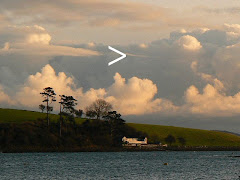Sunday, 7 November 2010
The Curfew Bell - PS to yesterday's post
Having done a little research into the history of the curfew bell, I think I'll give up on the idea that Gray may have written 'curlew' and that a typesetter's error (or confusion between an old 'f' and an old 'l') gave us 'curfew'.
The curfew bell, which was sounded in mid-evening and was the signal to reduce (but not extinguish) all fires by raking ash over any burning logs, was introduced by Alfred The Great and was primarily a method of fire prevention; but the practice was eagerly adopted by William The Conqueror as a means of political control over his Anglo-Saxon subjects, in particular to discourage political gatherings in the evenings. The curfew law was eventually repealed by Henry I in 1103, but the custom persisted in some areas until well into the eighteenth century - hence, presumably, 'The curfew tolls the knell of parting day'.
I can't even argue that Gray wouldn't have used 'curfew' as shorthand for 'curfew bell', because he was in such good company - Milton did it in Il Penseroso:
'I hear the far-off curfew sound,
Over some wide-water'd shore..'
Or was it the 'far-off curlew sound'? No, I'll drop it.
blog comments powered by Disqus
Subscribe to:
Post Comments (Atom)














